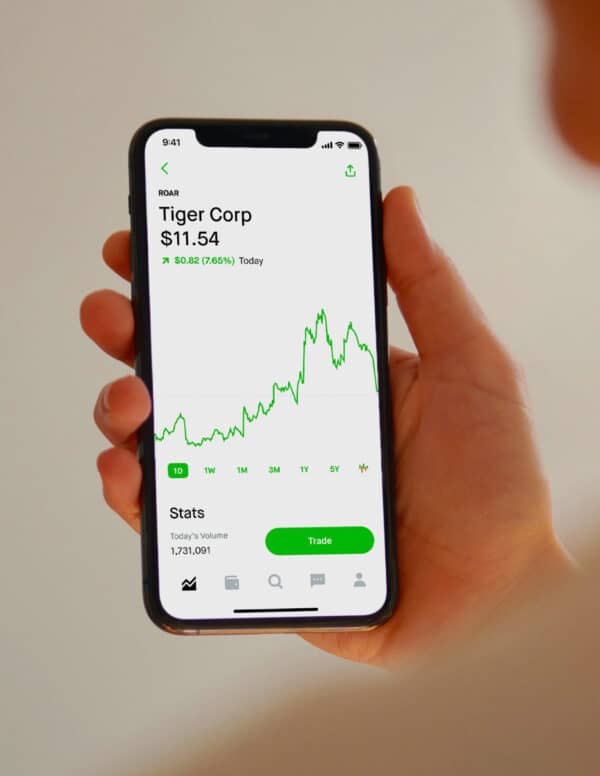As has been long anticipated, Robinhood Markets, Inc. has publicly filed a Form S-1 with the Securities and Exchange Commission (SEC) in pursuit of an initial public offering (IPO). Robinhood expects to float its shares on the Nasdaq under the ticker symbol HOOD.
Robinhood is an online investment platform that quickly emerged as a trading and investment platform that appeals to a younger demographic. From January 1, 2015, to March 31, 2021, Robinhood notes that over half of the customers’ funding accounts on their platform told them that Robinhood was their first brokerage account. Its commission fee trading strategy caused established brokers to adjust their pricing models as millions of users signed up for Robinhood. The company said that it would open up the public offering to its customers and not just institutional investors.
According to the S-1, Robinhood crypto has emerged as a significant portion of their business with over 9.5 million customers trading $88 billion of crypto during Q1 of 2021 alone. As of March 31, 2021, $11.6 billion of assets under custody, were attributed to cryptocurrencies – thus digital assets are playing an important role in Robinhood’s success. For the three months ended March 31, 2021, 17% of Robinhood’s total revenue was derived from transaction-based revenues earned from cryptocurrency transactions, compared to 4% for the three months year ended December 31, 2020.
In 2020, Robinhood’s net cumulative funded accounts grew 143% to 12.5 million, increasing to 18.0 million as of March 31, 2021.
For the year ended December 31, 2020, as compared to the year ended December 31, 2019, total revenue grew 245% to $959 million, up from $278 million. Robinhood recorded a net income of $7 million, compared to a net loss of $107 million during the same period.
For the three months ended March 31, 2021, as compared to the three months ended March 31, 2020, total revenue grew 309% to $522 million, up from $128 million; Robinhood recorded net loss of $1.4 billion, which included a $1.5 billion fair value adjustment to our convertible notes and warrant liability, compared to a net loss of $53 million with adjusted EBITDA of $115 million, compared to negative $47 million in the year prior.
Robinhood states that its current retail brokerage, cryptocurrency trading, and cash management offerings are the “first step toward a comprehensive financial services platform.” The company says its current offerings are “only the beginning” as it seeks to transform the world of financial services.
Key elements of Robinhood’s growth strategy include:
- Continuing to add new customers to the platform. Robinhood believes there remains a significant opportunity for them to continue growing their customer base as they attract new investors to financial markets.
- As customers grow their wealth, Robinhood believes they will continue to expand their relationship with the platform, providing an increased opportunity to meet their growing financial needs.
- Robinhood intends to continue to invest in the platform through four key areas: product innovation, educational content, technology, and infrastructure improvements, and customer support.
- Expanding Internationally. Robinhood believes there is a significant opportunity for Robinhood to grow internationally, including into Europe and Asia.
The past year has been a rocky one for Robinhood. Between fines assessed by both the SEC and FINRA along with the Reddit-fueled trading blitz that caused Robinhoods platform to stumble and created a need for the company to raise additional capital, the company has not had an easy path to navigate. It does not help that both public and private entities are engaged in legal actions against the firm.
Yet all of this stands in contrast to the incredible success Robinhood has had in bringing millions of young investors into the markets – investing their money (or perhaps speculating), an important aspect of any individual’s financial future.
As this is the first S-1 filed, more details will filter out in the coming weeks – including Robinhood’s valuation once its bankers have a chance to establish a price for its shares.


